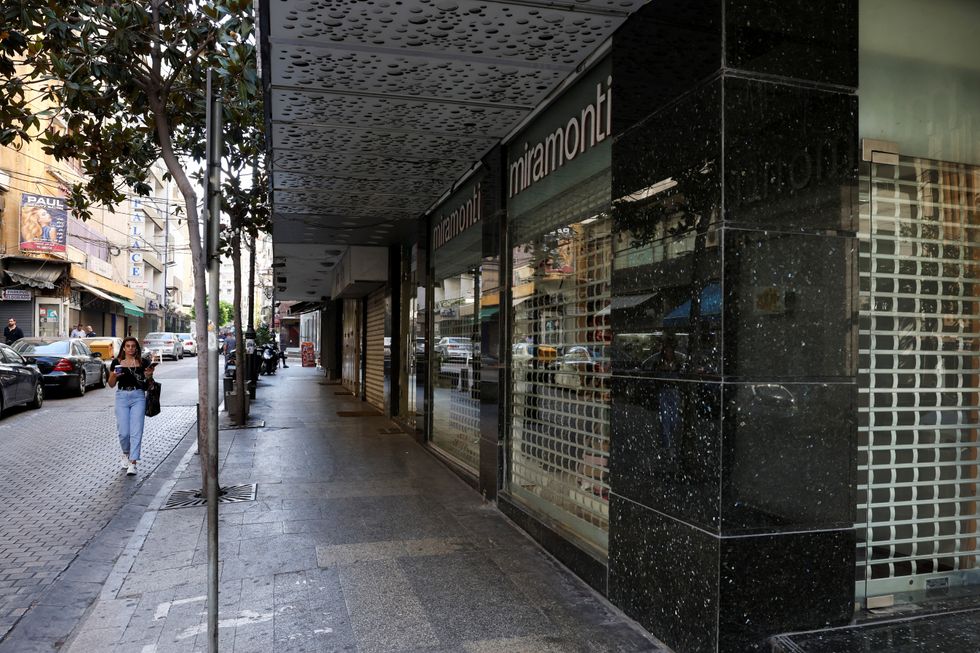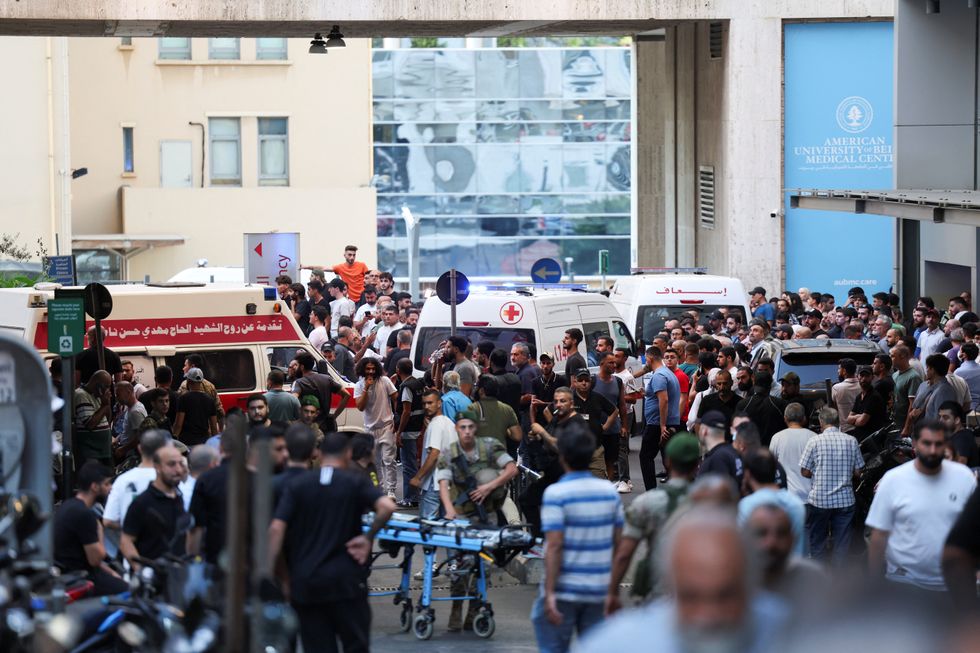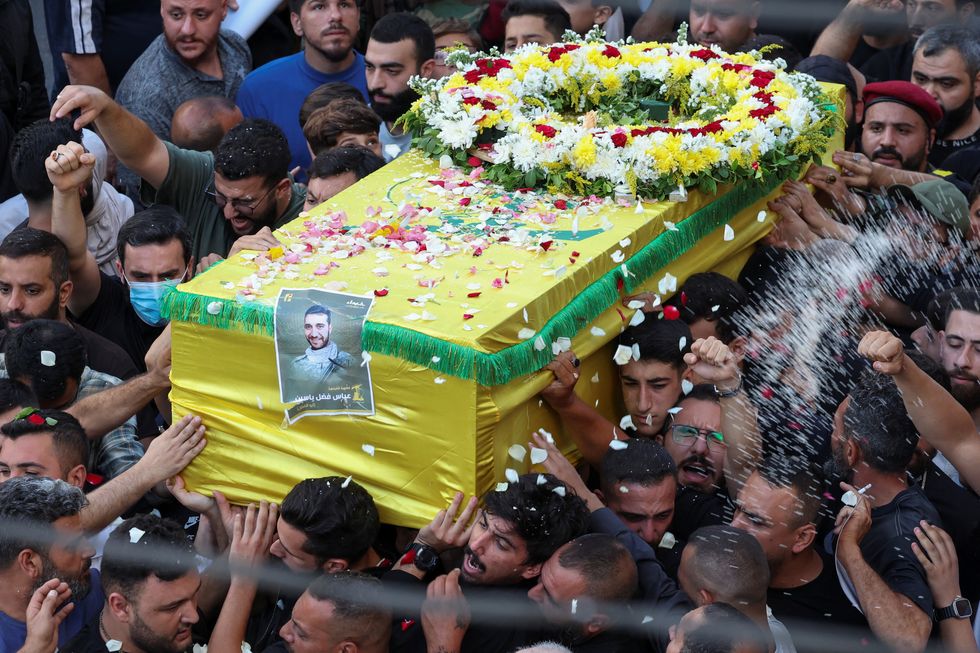People gather outside a hospital as more than 1,000 people, including Hezbollah fighters and medics, were wounded
Reuters
Witnesses reported seeing walkie-talkies detonating during a funeral procession
Don't Miss
Most Read
Trending on GB News
A fresh wave of explosions rocked Lebanon on Wednesday, killing at least 14 people and wounding over 300, according to the country's health ministry.
The blasts, which targeted walkie-talkies and other devices used by Hezbollah, occurred across the country's south and in the southern suburbs of Beirut.
Lebanon's health ministry said 14 people had been killed and 450 injured on Wednesday, while the death toll from Tuesday's explosions rose to 12, including two children, with nearly 3,000 injured.
Witnesses reported seeing walkie-talkies detonating during a funeral procession with the Lebanese Red Cross deploying ambulance teams to respond to multiple blast sites.

Shops were closed following pager detonations across Lebanon
Reuters

People gather outside a hospital as more than 1,000 people, including Hezbollah fighters and medics, were wounded
Reuters
Hezbollah officials blamed Israel for the attacks, which have heightened fears of an escalating conflict in the region.
Jordan's Foreign Minister Ayman Safadi accused Israel of pushing the Middle East to the brink of a regional war by orchestrating a dangerous escalation on many fronts.
The Israeli military said warning sirens sounded a number of times in northern Israel but there were no reports of any damage or casualties.
Mohanad Hage Ali of the Carnegie Middle East Center said: "Hezbollah wants to avoid an all-out war. It still wants to avoid one. But given the scale, the impact on families, on civilians, there will be pressure for a stronger response."
LATEST DEVELOPMENTS

Ambulances arrive to American University of Beirut Medical Center (AUBMC) as more than 1,000 people, including Hezbollah fighters and medics, were wounded
Reuters
The explosions have deepened concerns over escalating tensions between Hezbollah and Israel. Cross-border exchanges have been ongoing since October, with Hezbollah firing rockets at northern Israel earlier on Wednesday.
Israel has moved more troops to its border with Lebanon as a precautionary measure, according to an unnamed official.
US Secretary of State Antony Blinken said the attacks could affect efforts to negotiate a ceasefire in Gaza.
The Israeli military has declined to comment on the explosions, but a senior Lebanese security source claimed Mossad had planted explosives in the devices months ago.

Men carry the coffin of Abbas Fadel Yassin, who was killed amid the detonation of pagers across Lebanon, during his funeral in Beirut
Reuters
One Hezbollah official said the detonation was the group's "biggest security breach" in its history.
Several sources said the plot appears to have been many months in the making followed a series of assassinations of Hezbollah and Hamas commanders and leaders ascribed to Israel since the start of the Gaza war.
Hezbollah had turned to pagers and other low-tech communications devices in an attempt to evade Israeli surveillance of mobile phones.








